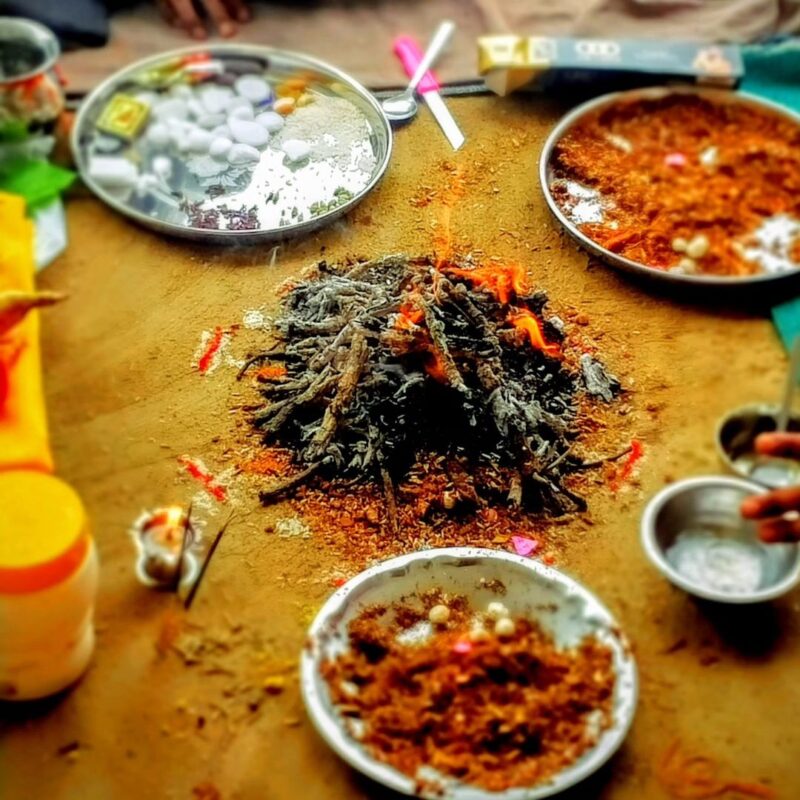Sanatan Dharma, often considered a science-based religion, reflects a holistic way of life rather than a conventional religion. This scientific underpinning is evident in many traditional practices, including Havan, which is central to Hindu rituals. Havan, also known as Yagya, is integral to auspicious ceremonies in Hinduism, believed to purify and benefit both the environment and individual health.
What is Havan?
Havan is a ritual involving the burning of specific substances, known as Havan Samagri, in a sacred fire. The Samagri is typically composed of various herbs and types of wood. The smoke produced during Havan is said to have numerous scientific benefits, positively impacting the environment and the physical, mental, and spiritual health of participants.
Scientific Benefits of Havan

Environmental Purification: Research by the National Botanical Research Institute (NBRI) highlights that the smoke from Havan purifies the environment by eliminating harmful bacteria. An experiment demonstrated that burning Havan Samagri in a closed room reduced harmful bacteria in the air by up to 94%. This effect lasts for about 30 days, preventing the growth of harmful germs.
As per a report published by Payal Rathi in RJCES, The medicinal fumes emanating from the process of Yagya have been observed by researchers in the field of microbiology to be clearly bacteriostatic in nature, which eradicate bacteria and micro-organisms, the root causes of illness and diseases. This must be the reason why the incidence of physical ailments, sickness and diseases becomes less in the households where yagya is regularly performed.
Health Benefits: The medicinal smoke from Havan is beneficial for human health, particularly in its ability to act as a natural disinfectant. Unlike pharmaceutical drugs, which may have side effects, the smoke from Havan is natural and holistic. Ayurveda, the ancient Indian system of medicine, includes a practice called ‘Dhum Chikitsa,’ where patients inhale smoke from burning medicinal substances for therapeutic effects.
As per the research of Payal Rathi in RJCES, report quotes that “Purification of environment through the constituent electrically charged particles of the substances fumigated in yagya is an obvious byproduct of this process. According to Dr. Hafkine, the smoke produced by burning the mixture of ghee and sugar kills the germs of certain diseases; inhaling it from some distance induces secretion from certain glands related to the windpipe that fill our heart and mind with relaxation.”

Agricultural Benefits: Agricultural scientists have observed that the smoke from Havan can help protect crops by eliminating harmful bacteria, potentially reducing the need for chemical pesticides. As per the same report published by Payal Rathi, report says that “The disinfection of air is not only useful to animal life but it also helps plant life. The aromatic substances, which get diffused in the air through yagya offer protection to plant life against harmful organisms. This ensures a healthy plant growth. Yagya atmosphere and ash can be used as adjuvants in the natural farming methods also known as the yagya farming methods.”
Havan, a pivotal practice in Sanatan Dharma, is deeply rooted in scientific principles. It offers a range of benefits, from environmental purification to health and agricultural improvements. Embracing this ancient practice can lead to a holistic and healthier way of life, underscoring the timeless relevance of Vedic wisdom.







